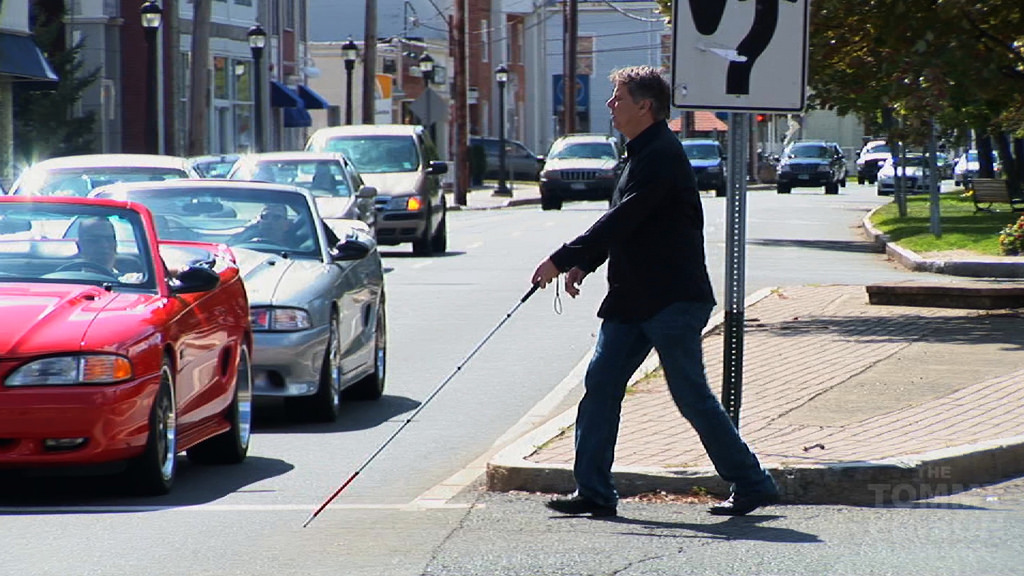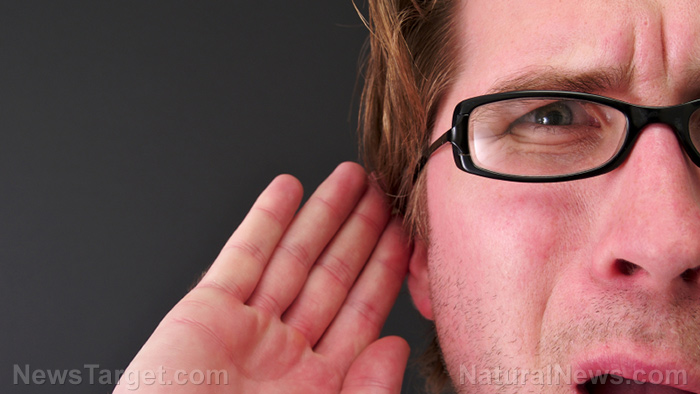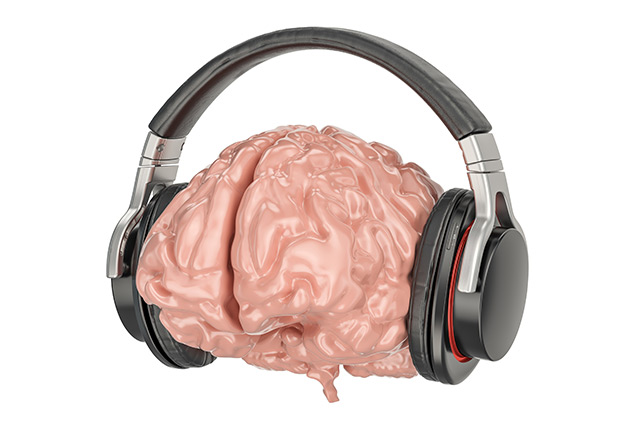
Brain plasticity allows blind people to hear better
“There’s this idea that blind people are good at auditory tasks, because they have to make their way in the world without visual information. We wanted to explore how this happens in the brain,” said Ione Fine, the senior author of both studies.
According to previous research, a part of the brain called human middle temporal complex (hMT+) becomes sensitive to auditory motion in individuals who had lost their sight early. But for people who can see, hMT+ plays a central role in the perception of visual motion. In fact, scientists consider it a unimodal visual area that is not influenced by other sensory modalities.
The changes in the way hMT+ functions in blind individuals led the researchers to explore this brain region further.
In their first study, which appeared in the journal Proceedings of the National Academy of Sciences, Fine and colleagues worked with sighted and early-blind individuals, as well as individuals who have recovered their sight, to investigate how hMT+ works. They used functional magnetic resonance imaging (fMRI) to measure auditory frequency tuning in the participants' auditory and occipital (visual) cortex.
The researchers asked the participants to listen to tones with different auditory frequencies. They used stationary tones and tones that sounded as if they were moving. This is to assess frequency selectivity and how hMT+ might be helping blind people track moving objects using sound.
The researchers found that in the auditory cortex of all the participants, both moving and stationary stimuli triggered frequency-selective responses. However, in the visual cortex where hMT+ is located, they only found evidence of frequency selectivity for moving stimuli in early-blind individuals and those who have recovered their sight. In contrast, hMT+ in individuals with sight did not show selectivity for either stimulus.
“These results suggest that early blindness results in visual areas being recruited to solve auditory tasks in a relatively sophisticated way,” explained Fine. He also added that brain plasticity likely occurs early in development, as evidenced by how the brains of early-blind individuals managed to shift to auditory processing and retain this ability even after their sight had been restored. (Related: Magnesium improves brain plasticity to ease anxiety and boost cognition.)
Early blindness causes the auditory cortex to adapt
In the second study, which was published in The Journal of Neuroscience, the researchers focused on the changes that occur in the auditory cortex due to early blindness. They observed the brain activities of early-blind individuals and people with anophthalmia -- a condition in which one or both eyes fail to develop -- in that particular brain region and compared them with those of individuals with sight.
Using fMRI as well as static and moving stimuli with different frequencies, they measured how accurately neurons in the auditory processing center of the brain could represent information about sound.
Despite the region receiving very similar auditory information in blind and sighted individuals, the researchers found more refined frequency tuning in early-blind and anophthalmic individuals than in those who can see. This accuracy in representing sounds allows blind people to pick out and identify sounds in their environment better than people with sight.
According to Fine, the brains of blind individuals need to extract more information from sound, and their auditory cortices seem to have adapted themselves to accommodate this need.
“These results provide some of the first evidence in human participants for compensatory plasticity within nondeprived sensory areas as a result of sensory loss,” the researchers concluded in their study.
Learn more about the human brain and how it adapts to different situations at Brain.news.
Sources include:
Please contact us for more information.






















